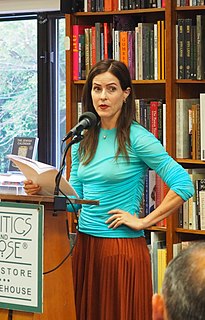A Quote by Wendy Long
What I do know is that liberal Democrat policies in our big cities are not helping anybody, especially our big cities.
Related Quotes
The way our big cities change sucks. The beauty of cities was that they were edgy, sometimes even a little dangerous. Artists, poets, and activists could come and unify and create different kinds of scenes. Not just fashion scenes, scenes that were politically active. Big cities are getting so high-end oriented, business corporate fashion, fashion not in an artistic sense but in a corporate sense. For me that edgy beauty of cities is lost, wherever you go.
As a country, Americans have to find a way to keep our cities solvent. If large numbers of cities no longer have the necessary tax base, we have to find federal methods to intervene. If we don't, there's a risk of dozens of cities simply being left to their bankrupt fates - and I can't see how that serves anybody's interests in the long run.
For the most part, French cities are much better preserved and looked after than British cities, because the bourgeoisie, the people who run the cities, have always lived centrally, which has only recently begun to happen in big cities in England. Traditionally in England, people who had any money would live out in the suburbs. Now, increasingly, people with money live in the cities, but this has changed only in the last 20 or so years.
...our cities of the present lack the outstanding symbol of national community which, we must therefore not be surprised to find, sees no symbol of itself in the cities. The inevitable result is a desolation whose practical effect is the total indifference of the big-city dweller to the destiny of his city.
Fifty percent of the world's population lives in cities. In a couple of decades, 70 percent of the world's population will be living in cities. Cities are where the problem is. Cities are where the solution is, where creativity exists to address the challenges and where they have most impact. This is why, in 2005, the C40 was founded, an organization of cities that address climate change. It started with 18 cities; now it's 91. Cities simply are the key to saving the planet.




































